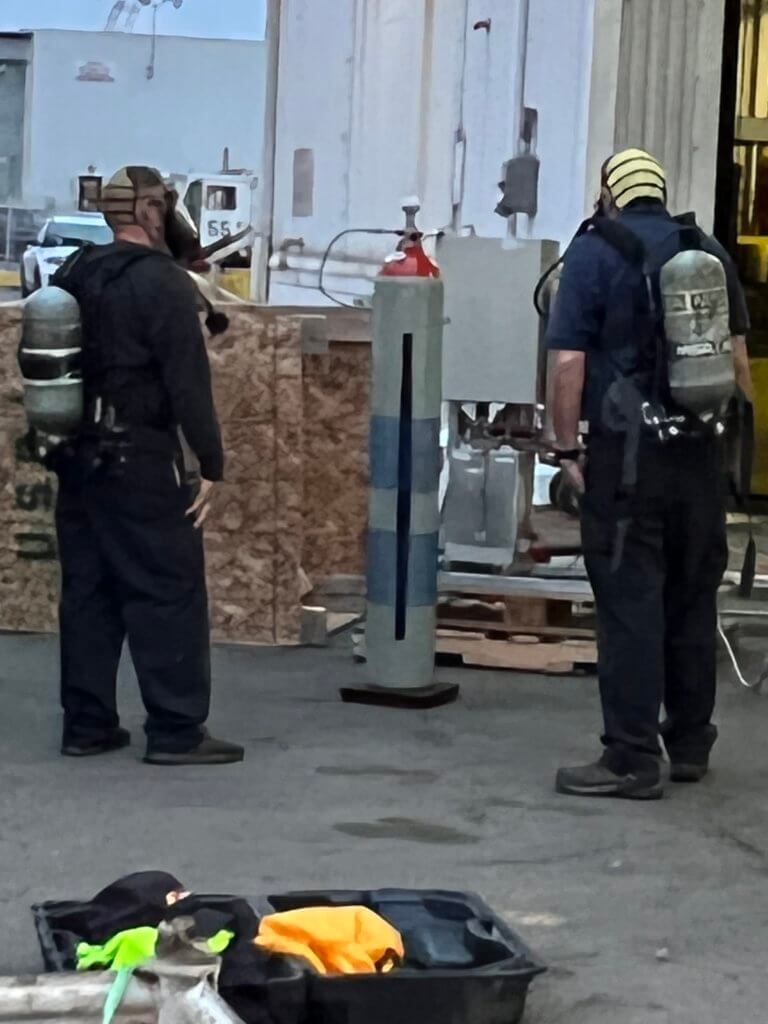Western Partners with USDA on Potential Alternative Fumigant
Winter in the Delaware River ports would not be the same without imported fresh produce filling our terminals and warehouses. The exponential growth in the volume of perishable imports since the 1980s continually demands new ways of handling and treating these foods to keep them flowing quickly and efficiently. American families have come to rely on imported fruits and vegetables during the winter, when domestic crops are not widely available.

While the 2021-2022 fruit season was particularly challenging not only for our region, but for the nation as a whole, this did not derail Western Fumigation’s plan to conduct a trial in April, in partnership with USDA, Holt Logistics, and the product manufacturer, Draslovka Services, using eFume™ — a promising, sustainable alternative to current fumigation treatments. “We are long-term partners in the perishable commodities industry,” said Miriam Borja-Fisher, Western’s Senior Business Development Manager. “Our search for sustainable alternatives began over a decade ago and dates even further back to our co-founding of the Crop Protection Coalition and MBAO*,” she added.

The April project was a proof-of-concept trial conducted by USDA-ARS’s Dr. Spencer Walse and team, based in Parlier, CA, in conjunction with USDA-APHIS staff, both local and from the Massachusetts Lab (Drs. Scott Myers and Mauri Hickin). Dr. Walse has been working with Draslovka Services in California conducting trials on domestic citrus for export. He was very encouraged by the results of the east coast trial, which was made possible with the help of William H. Kopke, Jr. Inc., who supplied the pallets of grapes used in the trial.
“It was critical to determine whether this alternative would be operationally feasible since we only have access to the terminals for a specific number of hours during the night and have to be mobile and out of the way before normal port operations resume the following morning,” said Bob Verrico, Service Manager for Western.
eFume™ is currently undergoing EPA review for final approval. Concurrently, USDA- APHIS continues to conduct laboratory efficacy trials, which show promising results as a potential drop-in alternative. “With increased regulatory pressure on the fumigation industry, this novel chemistry offers a balance of security for the international supply chain while preventing accidental introductions of catastrophic invasive pest species at the same time. Although nothing is perfect, ethyl formate has a significantly lower human risk profile, is not a hazardous air pollutant and is a GRAS (generally regarded as safe) chemistry. And let’s not forget, it’s showing really good efficacy on surface feeding invasive pests. While there is still more research to be done, there is great promise in being able to ensure food security while protecting domestic agriculture at the same time – that combination is a really good deal! As a matter of fact, that is the mission of Western Fumigation,” said Shannon Sked, Western Fumigation Director. “We certainly are grateful for our partners in this trial; including the USDA-ARS, USDA- APHIS, Holt Logistics and Draslovka Services. This team effort is helping us to ensure our mission is met,” Sked added.
Western sees the registration of eFume™ as an all-around win for industry and regulatory agencies, allowing the sustainable flow of commerce and ensuring that Americans have access to nutritious food year-round. “The next step is to conduct a large-scale operational trial that will allow USDA-APHIS to gather additional real-world data to establish a treatment schedule and lay out procedures for its field staff. We look forward to keeping industry informed of our progress,” said Borja-Fisher.
*Crop Protection Coalition (CPC) hosts the Methyl Bromide Alternatives Outreach Conference: Fumigation and Alternatives for Production, Storage and Trade Conference, established in 1983 to foster the search for alternatives and to maintain the safe use of methyl bromide until viable alternatives were found. Western Fumigation currently chairs the CPC.